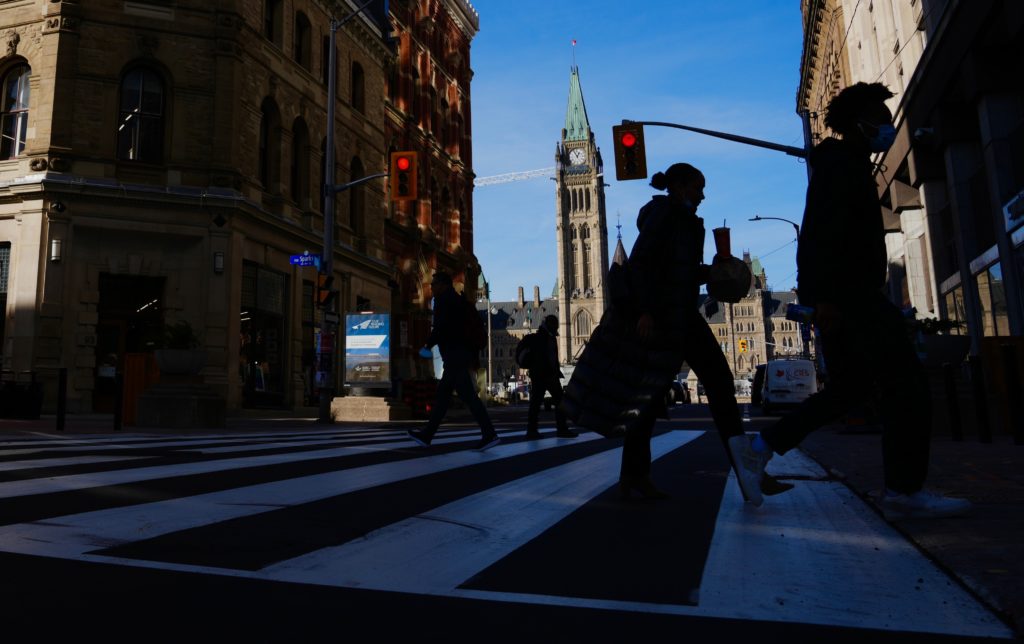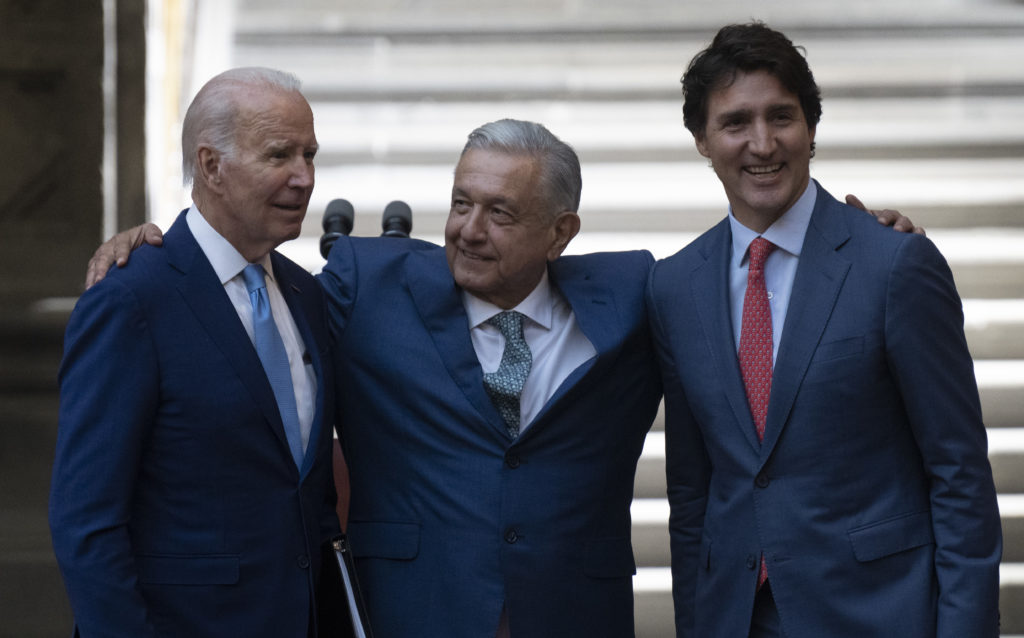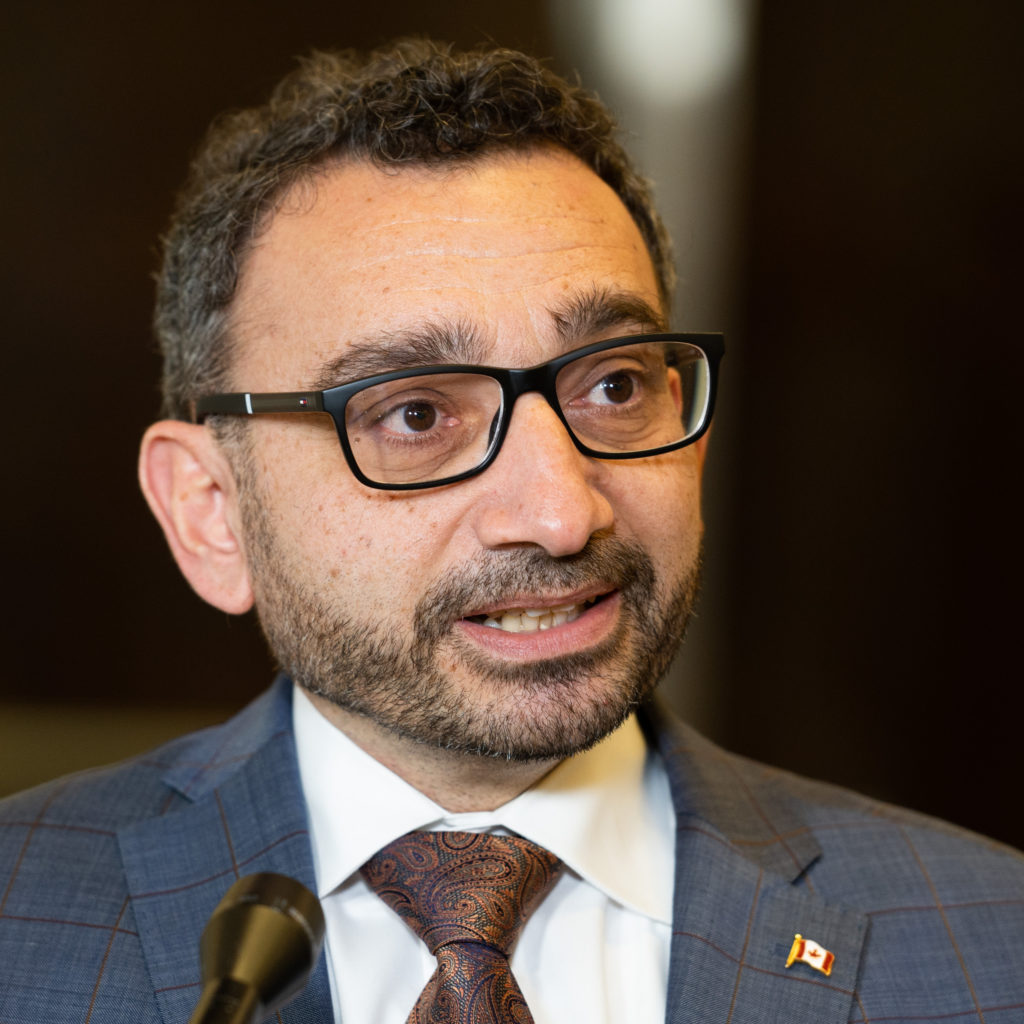The House of Commons will resume sitting on Monday, January 30 and the Senate returns on Tuesday, January 31.
In advance of the return, the three major parties recently held caucus meetings – the Liberals in Hamilton and the Conservatives and NDP in Ottawa.

Policy developments over the holiday break
Rogers-Shaw merger
On December 29, the Competition Tribunal rejected the commissioner of competition’s attempt to block the $20 billion deal to unite the two telecommunications companies, saying that Rogers’ plan to sell Shaw’s Freedom Mobile assets to Quebecor Inc. would ensure there would continue to be four strong telecom providers in major markets.
On December 30, the commissioner of competition appealed the tribunal decision to the Federal Court of Appeal and applied for an injunction to prevent the proposed transactions from closing pending disposition of the appeal. The court granted the injunction on January 2 but at a hearing on January 24 dismissed the Competition Commissioner’s appeal.
On January 25, the House of Commons Standing Committee on Industry and Technology began a second public hearing on the Rogers-Shaw deal; after a previous round of meetings last year before the deal to sell Freedom Mobile to Quebecor was negotiated, the committee issued a report in March recommending against the deal. The committee does not have the power to stop the deal from proceeding.
Two additional hurdles remain before the deal can go ahead:
- On January 19, the wholesale reseller TekSavvy Solutions Inc. filed an application to the Canadian Radio-television and Telecommunications Commission (CRTC) disputing the legality of the wholesale arrangements Rogers Communications Inc. has made with Quebecor Inc. as part of the divestiture of Freedom Mobile. The CRTC has not yet responded to the application.
- The deal, which Rogers and Shaw hope to close by Jan. 31, still requires approval from ISED Minister François-Philippe Champagne.
“Just Transition”
On January 3, Natural Resources Minister Jonathan Wilkinson announced that he would introduce the government’s “Just Transition” legislation early in 2023 to help workers in the oil and gas sector move into green energy jobs. Alberta Premier Danielle Smith attacked the plan, after a federal briefing note emerged saying that during the transition to net zero, communities heavily dependent on fossil energy production will be “disproportionately affected.” She said the prime minister was creating “tension and division” with the legislation. Associate Finance Minister Randy Boissonnault disagreed saying, “the opportunities emerging from the evolution of energy represent great promise for Alberta workers. As part of our plan to lower emissions and spur economic growth, the federal government will support these workers in acquiring the skills they need to secure these jobs.”
Purchase of F-35 fighter jets
On January 9, the federal government announced an agreement with the United States government and Lockheed Martin with Pratt & Whitney for the acquisition of 88 F-35 fighter jets for the Royal Canadian Air Force (RCAF) at a cost of $19 billion. The first deliveries of these aircraft are anticipated to begin in 2026.

More defence donations to Ukraine
On January 10, the Minister of Defence, Anita Anand, announced that Canada is purchasing a National Advanced Surface-to-Air Missile System (NASAMS) and associated munitions from the United States to donate to Ukraine. The NASAMS system is valued at approximately $406 million. While visiting Kyiv on January 17, Minister Anand also announced that Canada is sending another 200 Canadian-made armoured vehicles to help with the defence of Ukraine at a cost of $90 million.
Now that Germany has agreed to provide the Leopard tanks that Ukraine has requested, Canada now faces a similar decision. There is some doubt as to the condition of Canada’s tanks; some reports have suggested that they have not all been kept up-to-date and battle-ready since they returned from Afghanistan several years ago. On January 26, Minister Anand announced that Canada will send four of its Leopards to Ukraine along with spare parts and training on how to operate the vehicles.
International relations
On January 10 and 11, Prime Minister Trudeau participated in the tenth North American Leaders’ Summit (NALS) with the President of Mexico, Andrés Manuel López Obrador, and U.S. President Joe Biden. While in Mexico, the three leaders signed the Declaration of North America. On January 12 in Ottawa, the prime minster met with Japanese Prime Minister Kishida Fumio, who will host this year’s G7 meeting in May.

Transportation Committee hearing on travel chaos
On January 11, the Commons Standing Committee on Transportation met to discuss the holiday meltdown in air and rail services. Under pressure to explain the collapse of services due to a severe winter storm, Transport Minister Omar Alghabra indicated openness to looking at other jurisdictions, including the European Union, for ways to improve air passenger protections. The prime minister also committed to stronger and expanded passenger rights. The Canadian Transportation Agency currently has a backlog of 33,000 airline passenger complaints. The committee met again on January 26 to hear from VIA Rail executives.

Federal contracting issues
According to public accounts data, the international consulting company McKinsey & Company has seen the value of its federal contracts rise to more than $100 million under the Liberals since 2016. Government insiders allege that repeated use of the company “was an idea from the government” (the political level), and a CBC report claims that $45 million of those contracts were sole-sourced. The House Government Operations and Estimates Committee (OGGO) will be launching a study of the contracts when Parliament resumes next week.
The OGGO Committee is also continuing its study of the ArriveCan app, which ultimately cost $54 million. On January 23, the Globe and Mail reported that GC Strategies – the two person Ottawa-area staffing company that has received millions of dollars in federal commissions on IT projects – subcontracted its work on the ArriveCan app to six other companies. Calling the contracting arrangements “illogical and “inefficient,” the prime minister said that he has asked Privy Council Clerk Janice Charette to review procurement practices “to make sure that we’re getting value for money and that we’re doing things in a smart and logical way.”
Bail issues
Following the late-December fatal shooting of an Ontario Provincial Police constable and a murder charge against an individual who was out on bail and had a lifetime ban on owning a firearm, premiers and police chiefs delivered impassioned pleas for bail reform. With the return of Parliament, the government is sure to be under pressure to take up bail reform yet again. In response to bail concerns, Justice Minister David Lametti said, “It is important to note that the bail laws are clear that detention of an accused person is justified if it is necessary to protect the safety of the public.”
The notwithstanding clause
Last week, the prime minister kicked a potential hornet’s nest by telling La Presse that provinces should not be pre-emptively using the notwithstanding clause, because it means “suspending fundamental rights and freedoms,” and that he was considering a reference to the Supreme Court about its pre-emptive use. The notwithstanding clause, which is Section 33 of the Canadian Charter of Rights and Freedoms, allows Parliament or provincial legislatures to override certain sections of the charter and invoking it ahead of time prevents courts from weighing in.
In response, Quebec Premier François Legault accused Trudeau of attacking the province’s “democracy and people” by suggesting he would limit the use of the notwithstanding clause. “This desire expressed by Justin Trudeau is a frontal attack on our nation’s ability to protect our collective rights, Legault said. His government pre-emptively invoked the notwithstanding clause prior to bringing in the Quebec secularism law, known as Bill 21, which forbids some public servants in positions of authority from wearing religious symbols on the job.
Ontario Premier Doug Ford also threatened the pre-emptive use of the clause to stop the province’s education sector from striking last year but backed off after widespread public criticism of the idea. The prime minister called the use of the law in that instance “wrong and inappropriate.”
Health care deal close
Federal ministers and premiers have indicated in recent days that a multi-year deal to fund health care is close to being completed. Sources suggest the agreement would involve billions of dollars of new federal money in transfers and separate funding in bilateral agreements with provinces and territories.
On January 25, the prime minister announced that he will host a First Ministers’ meeting in Ottawa on February 7, but he downplayed the prospects of signing a final deal on funding on that date. “We’re not going to be signing deals on that particular moment,” Trudeau said in Hamilton. “It’ll be about starting the very direct hard work of the bilateral arrangements that will happen with every province, while at the same time we move forward with a frame around data and health information and results that I think every Canadian wants to see.” It is likely that the bilateral deals with provinces and territories will follow the February 7 meeting and be in place in time to be included in Budget 2023.
Deputy Minister shuffle expected
With the recent retirement of Mike Keenan, formerly DM at Transport Canada, a shuffle of deputies can be expected in the near future.
The national economy
The Bank of Canada (BoC) increased its trend-setting interest rate by 25 basis points to 4.5 per cent on January 25, after most inflation indicators eased slightly over the past month. In a news conference after the rate-hike, Governor Tiff Macklem said the Bank is forecasting “roughly zero growth for two or three quarters,” which could mean “a mild recession,” but “it’s not a major contraction.” In a prepared statement, the Bank said, “If economic developments evolve broadly in line with the outlook, the Bank expects to hold the policy rate at its current level while it assesses the impact of the cumulative interest rate increases.” The latest increase was the eighth in less than a year.
The Consumer Price Index (CPI) rose 6.3% year over year in December, down from a 6.8% increase in November. Excluding food and energy, prices rose 5.3% on a yearly basis in December, following a gain of 5.4% in November. Year over year, prices for food purchased from stores decelerated marginally in December (+11.0%) compared with November (+11.4%).
Federal fiscal plans questioned
Before the BoC set its rate, three senior economists warned the federal cabinet retreat in Hamilton this week that the economy is set to slow significantly this year. Former BoC senior deputy governor Carolyn Wilkins, Chief Statistician Anil Arora and University of British Columbia economics professor Kevin Milligan suggested that massive new federal spending would undermine the BoC’s efforts to cool inflation.
Earlier in the week, a report co-authored by former Bank of Canada governor David Dodge for Bennett Jones and the Business Council of Canada suggested the federal government is underestimating the risks of a possible recession and continuing high interest rates on its ability to keep its spending promises. The report presents alternative scenarios in which a recession would present a “high risk” that the government is unable to maintain its current fiscal track while adding tens of billions in new spending for such initiatives as new health care transfers to the provinces.
Speaking in Hamilton, Finance Minister Chrystia Freeland said her budget will focus on health care and green energy while being fiscally prudent, but she also must find a way to craft a Canadian response to the U.S. Inflation Reduction Act to ensure that it does not siphon investment south, which will be a big-ticket item. Freeland also said she needed to reserve fiscal firepower in the case of a severe economic downturn.
Political developments
The website 338Canada.com reports the Conservatives have opened up a five-percentage point lead over the Liberals. In recent national polls, the aggregator shows the Conservatives at 35 per cent, the Liberals at 30 per cent, the NDP next at 21 per cent, the Bloc Quebecois at 7 per cent, the Green Party at 4 per cent and the Peoples Party at 3 per cent.
Ongoing legislation
Bill C-11, Online Streaming Act
- Current status: At consideration in committee in the Senate, with many amendments
Bill C-18, Online News Act
- Current status: The bill passed in the Commons on December 14 with extensive amendments, and now goes to the Senate.
Bill C-21, Firearms
- Current Status: At consideration in committee in the House of Commons.
- This legislation attracted much attention after the government introduced amendments to dramatically expand the scope of “prohibited weapons” to include scores of hunting rifles and shotguns. These changes have attracted significant opposition from the Conservatives, the NDP and the Bloc, the three territorial premiers and the Assembly of First Nations chiefs. The government has promised to clarify the legislation.
Bill C-26, An Act respecting cyber security, amending the Telecommunications Act and making consequential changes to other Acts.
- Current status: At second reading in the House of Commons, not yet assigned to committee for detailed study.
Bill C-27, Digital Charter Implementation Act
- Current status: At second reading in the House of Commons, not yet assigned to committee for detailed study.
Bill C-29, National Council for Reconciliation Act
- Current status: At second reading in the Senate
Bill C-34, National Security Review of Investments Modernization Act
- Current status: At second reading in the House of Commons
Bill C-35, Canada Early Learning and Child Care Act
- Current status: Beginning second reading in the House of Commons
Major upcoming events
- February 7 – Prime Minister Trudeau meets with Canada’s premiers for health care summit.
- February 10 – Department of Finance Budget 2023 Consultation period closes.
- February 20 – Deadline for the Public Order Emergency Commission to report to the House and Senate.
- March 5-8 – Prospectors & Developers Association of Canada (PDAC) Annual Convention, Toronto
- May 4-6 – Liberals hold their national convention in Ottawa.
- May 6th – The Coronation of Charles III and Camilla.
- May 19/21 – The G7 Summit 2023 in Hiroshima, Japan.
- May 29 – Alberta provincial election.
- June 12 – Deadline to call Winnipeg South-Centre by-election.
- June 30 – Deadline to call Calgary Heritage by-election.
- July 11/12 – NATO Leaders meet in Vilnius, Lithuania.
- July 30/31 – Deadline to call Oxford, ON by-election.
- September 7/9 – Conservative Party Biennial policy convention in Québec City.
- October 2 – Prince Edward Island provincial election.
- October 3 – Manitoba provincial election.